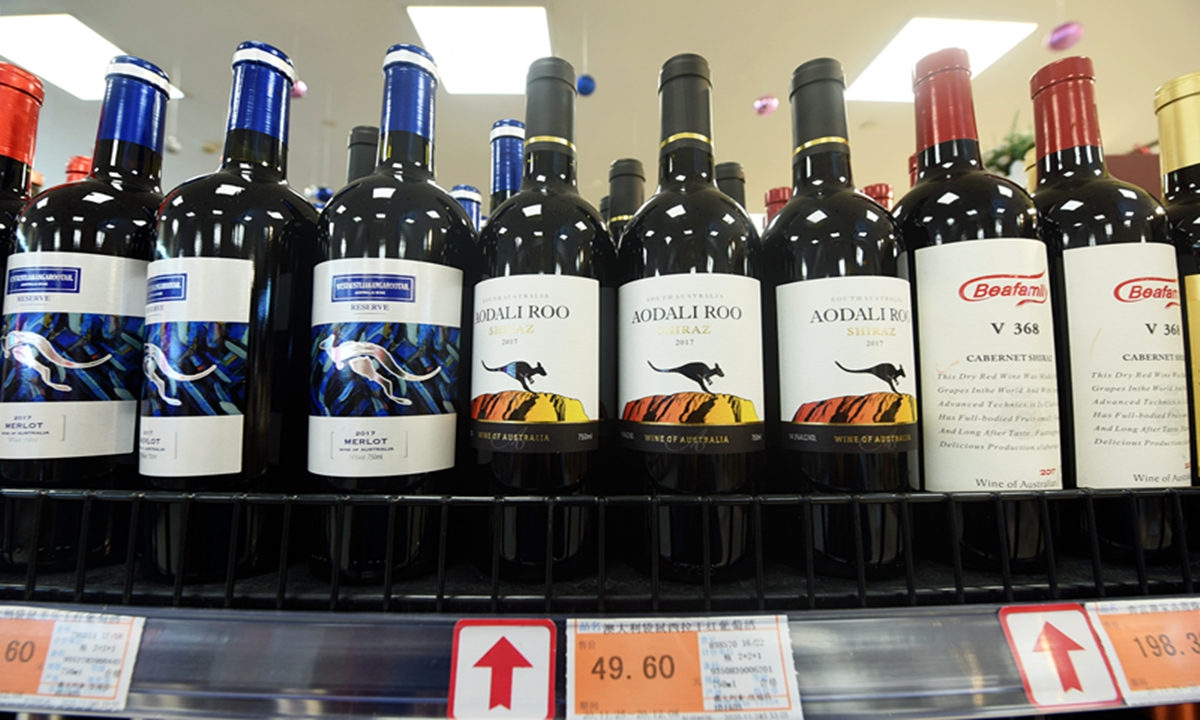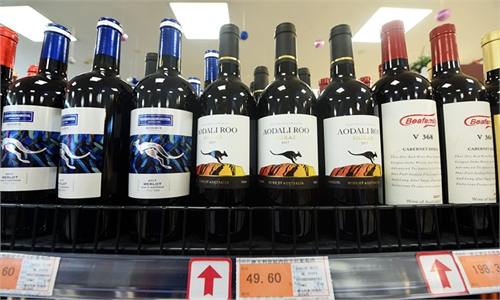
Bottles of Australian wine on the shelf of a supermarket in Hangzhou, East China's Zhejiang Province on November 27, 2020 Photo: VCG
Although Australian wine shipments to Hong Kong jumped 111 percent in the 12 months that ended on June 30, industry insiders said that Australian wine is still losing its biggest market, the Chinese mainland, due to anti-dumping tariffs and rising competition from French wine.
Australian wine shipments to Hong Kong surged A$187 million ($136.7 million), according to the latest data from Wine Australia. However, exports to the Chinese mainland plunged 45 percent in the financial year.
Bloomberg reported that Hong Kong "has the potential to become a back-door entry for wine into the mainland, as appears to be the case with Australian rock lobsters, which saw exports to the city explode more than 2,000 percent after Beijing banned them in 2020."
Chinese industry insiders told the Global Times on Thursday that Australian wine exporters' reported attempt to use Hong Kong as a channel to retain share in the mainland is futile, since Australian wine was already losing the mainland market, with French wine gaining popularity.
A Guangdong-based trader surnamed Lin, a former Australian wine trader, told the Global Times on Thursday that Australian wine is losing its mainland market due to anti-dumping tariffs and other factors, despite rising shipments to Hong Kong, because French wine is competitive in terms of quality and prices with Australian wine.
The Australian wine business in China has encountered the biggest hurdle in decades with anti-dumping measures, including tariffs of up to 218.4 percent.
"Some Australian wine producers are also trying to enter the mainland market by lowering prices in response to anti-dumping duties, even when that means lower profits," said Lin.
Despite these moves, there's little hope that Australian wine will regain its share.
From January to May, Australia exported 4.39 million liters of wine to China, with a total value of 296 million yuan ($45 million).
In the same period, China imported 42.32 million liters of wine from France, with a total value of 1.63 billion yuan. The quantity of Australian wine was just over one-tenth that of French wine, data from the General Administration of Customs showed.
Australian wine exporters are looking for a way to make up for their losses in the mainland market, and Hong Kong, as a free port, is a good destination for wine exporters. However, this won't make it easier for Australian wine to get access to the mainland, since traders still have to pay related tariffs when shipping wine from Hong Kong to the mainland, Huo Xingsan, secretary general of the Wine Branch of the China Alcoholic Drinks Association, told the Global Times.
Most wine merchants in China have also stopped offering Australian wine, which no longer provides much profit, noted Huo.

